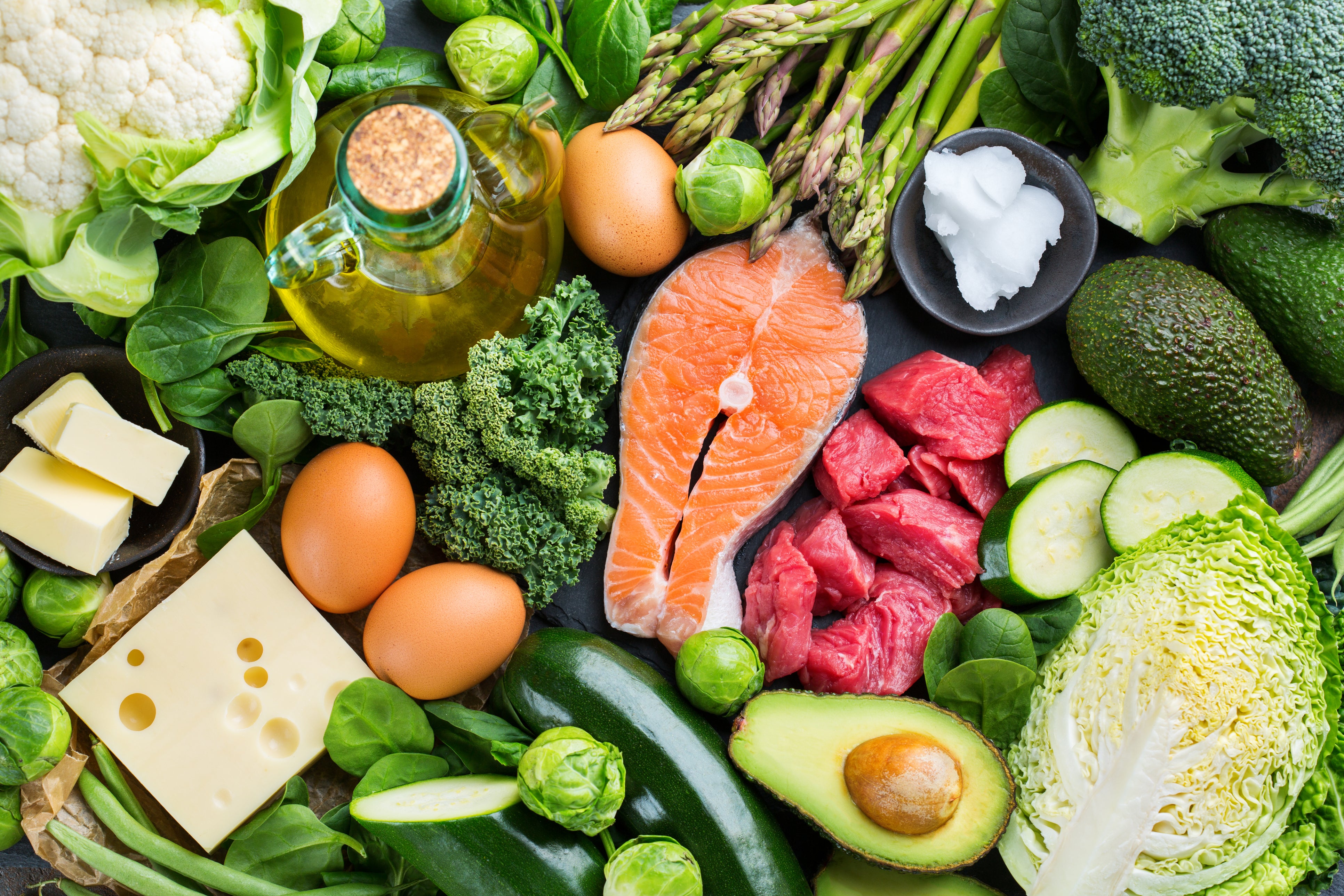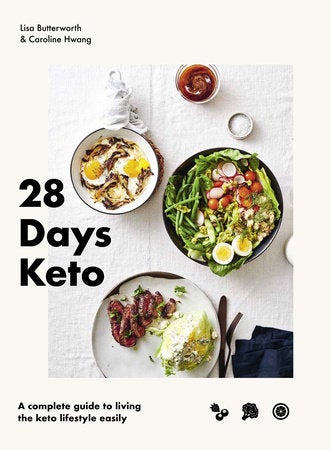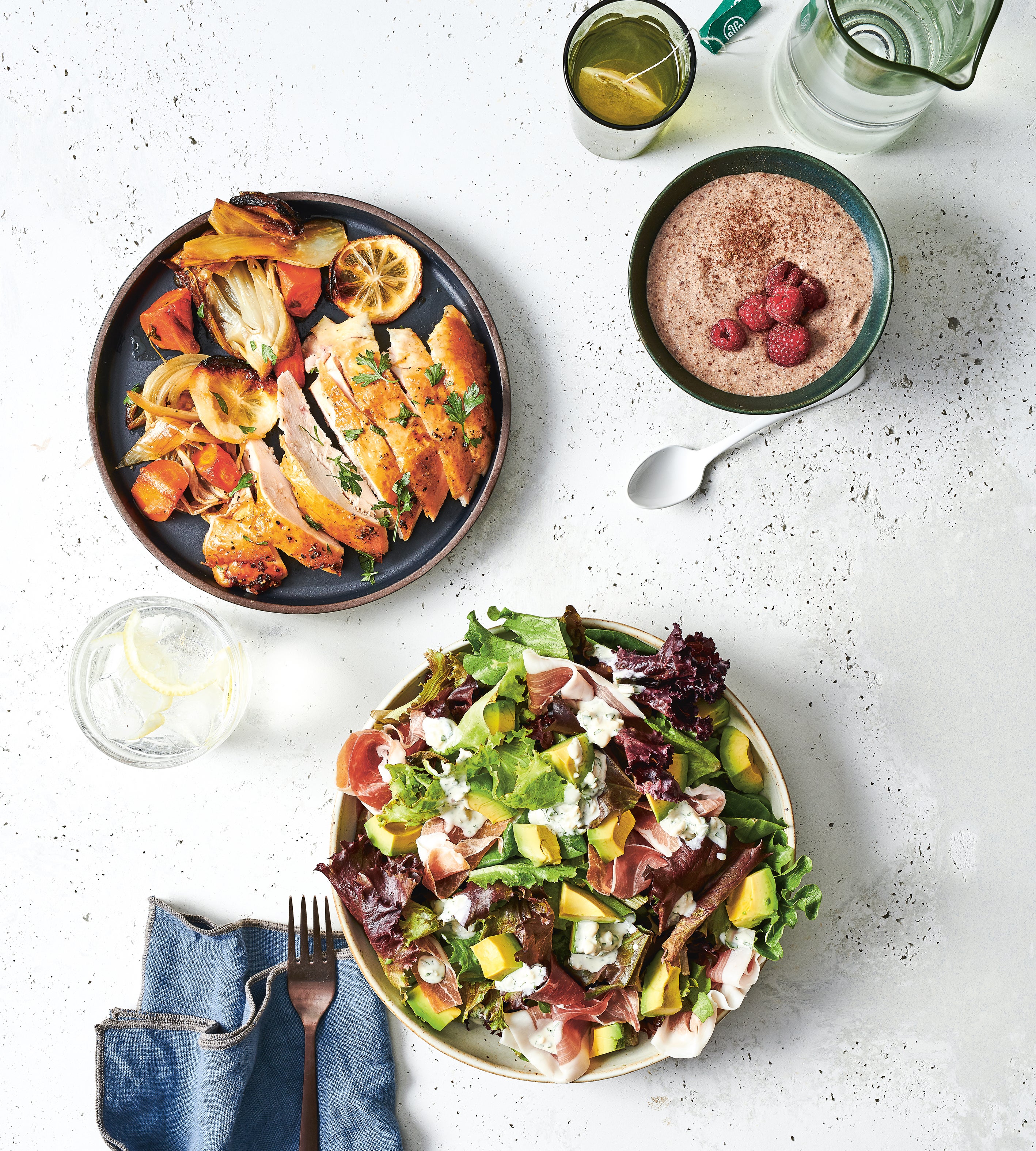How the keto diet can reboot your mental health and reduce belly fat this January
January is the month of health resets – but not all diets are created equal. Lisa Butterworth, co-author of ‘28 Days Keto’, chats to Hannah Twiggs about how to achieve a fat and protein balance for optimum results and shares day one of an exclusive week-long meal plan


January often feels like the month of dietary redemption. After weeks of indulgent roasts, endless cheese boards and the steady stream of festive drinks, many turn to the latest health trends in search of balance. From juice cleanses to intermittent fasting and vegan “detox” plans, there’s no shortage of options for those seeking a reset. But among the crowd, the ketogenic diet continues to stand out – offering a structured, science-backed approach to transforming not just the way you eat but the way your body fuels itself.
First developed in the 1920s as a treatment for epilepsy, keto has evolved far beyond its medical origins. The diet’s central premise is simple but radical: by drastically reducing carbohydrate intake and prioritising fats, you force the body into a state of ketosis, where it burns fat for energy instead of glucose. Advocates tout benefits ranging from weight loss to increased energy and mental clarity. Now, a new book, 28 Days Keto, co-authored by Lisa Butterworth and Caroline Hwang, aims to make this once-intimidating diet accessible to everyone.
“It’s always challenging to shift habits and patterns, especially when it comes to diet,” Butterworth says. “But it’s much easier when the decision-making is alleviated, which is what having a daily meal plan does.” And alleviated it is. The book presents a full 28 days of meticulously planned meals – breakfast, lunch and dinner all sorted, with weekly shopping lists and prep tips thrown in for good measure. It’s a formula designed to leave readers little excuse to deviate.
Keto, for the uninitiated, is not a diet that allows much wriggle room. Butterworth acknowledges that it’s “not for everybody”, but for those who commit, she paints an appealing picture of life on the other side. “Eliminating the highs and lows of glucose spikes can lead to greater, more sustained energy – and that clear-headedness is built-in motivation for continuing to eat a keto diet.” At its heart, the keto lifestyle taps into a broader trend: the intersection of food and mental health, and the idea that what we eat affects how we feel.
The recipes themselves are where the book really gets interesting.
Butterworth’s favourites include “the smoky chili and the rock cod in spicy tomato broth” – both of which, she says, are particularly comforting in winter. There’s also a Nicoise salad “extremely satisfying” in its precision and balance, and a chia seed pudding that works as breakfast or snack. For those fretting over the monotony often associated with restrictive diets, these recipes come as a revelation. Even comfort foods – a creamy cauliflower mash or an unashamedly indulgent keto-friendly chocolate mousse – find a way onto the menu, proving that low-carb needn’t mean dull.
One of the book’s strengths is its emphasis on accessibility. Butterworth’s approach to meal prep is so pragmatic it borders on joyful. “Make prep fun,” she says, with an infectious enthusiasm that makes even chopping carrots seem purposeful. “Read through the recipes and see what dressings, sauces or veggies you can prepare ahead of time. Chop and prep your veggies, wash your fruit, and make a meal plan cheat sheet you can keep in sight, on the fridge or your kitchen cabinet so you know what meal is next.” It’s advice that turns a task many view as drudgery into a preamble to something satisfying. If there’s a “maternal” edge to her tone, it’s intentional, designed to reassure readers that they won’t go it alone.

Still, the keto journey can feel steep, particularly when it comes to tracking macronutrients. “Tracking macronutrients is an important step and a necessary one in order to get your body into ketosis, but if you’ve never tracked your food intake before, it can feel overwhelming.”
Butterworth’s solution? Start small. “Since limiting carbs is the most essential element of a keto diet, start by simply tracking those, making sure to generally eat enough fat and protein.” Once you’re comfortable, you can begin fine-tuning. In a digital age, food-tracking apps make this process less cumbersome, transforming an otherwise tedious exercise into a streamlined ritual.
The month’s air of renewal makes it fertile ground for transformations, and Butterworth is keen to highlight keto’s broader benefits. “Eliminating highly processed and sugary foods is naturally going to benefit your gut flora,” she says. And with a steady and constant source of energy from fat, that mid-morning or afternoon slump is essentially eliminated.
Then there’s the gut-brain connection, which she describes as crucial: “Making all your meals at home using high-quality produce and animal products can help alleviate digestion and nutrient absorption issues.” It’s the sort of holistic thinking that appeals to readers looking for more than just a diet – they want a lifestyle shift.
Not everything about keto is straightforward. Its reliance on animal products is a red flag for some, and Butterworth doesn’t shy away from this. She encourages mindful sourcing: “Always look for organic animal products and grass-fed, pasture-raised meats and eggs,” she says. If possible, “get your products from local sources”. It’s a pragmatic nod to sustainability, a way to tether personal health to planetary wellbeing.
Eliminating the highs and lows of glucose spikes can lead to greater, more sustained energy – and that clear-headedness is built-in motivation for continuing to eat a keto diet
For those with dietary restrictions, the keto path is more fraught. Butterworth admits that combining keto with veganism is “very challenging and extremely restrictive”, but she suggests workarounds for less rigid scenarios. Lactose-intolerant? Almond or coconut milk can slot in seamlessly where traditional dairy might feature. These small accommodations reveal the book’s practical heart: it’s less a manifesto and more a toolkit, ready for adaptation.
Yet keto, like all diets, has its hurdles. The rigidity can be alienating to some and many are wary about excessively restricting carbohydrates. Butterworth’s optimism here feels earned: “One of the interesting things about changing your diet is how quickly your palate changes along with the foods your mind and body crave,” she says.
Her encouragement for moments of indulgence – a rogue slice of cake, the midnight pasta – feels refreshingly human. “If all or nothing is what works for you, great. If you want to mostly eat keto but with some flexibility, also great.” It’s a sentiment that champions progress over perfection.
Butterworth is convinced that keto is here to stay. “It’s not a diet for everyone, but it’s helped far too many people feel better in their bodies to diminish in popularity,” she says. The rise of keto-friendly snacks and low-carb ingredients speaks to its staying power. For those converted by 28 Days Keto, Butterworth suggests the next step is simple: “After 28 days of making and eating keto meals, you’ll practically be a pro. Go back to your favourite recipes from the book, experiment with your own dishes, keeping macronutrient balances in mind, and explore other keto cookbooks or recipe sites,” she says. “If eating a keto diet makes you feel good, continuing after 28 days will be a pleasure.”
The real appeal of keto lies in how it makes you feel. Butterworth points to readers who’ve reported clearer skin, improved energy levels and stable moods. And for those still sceptical? The vibrant, nutrient-dense recipes in 28 Days Keto might just be the nudge they need to rediscover the joy of eating well while embracing a healthier future.
To get you started on your keto journey, we’ve got recipes for breakfast, lunch and dinner for day one below. But this is just the beginning! We’ll be publishing a new day of recipes from 28 Days Keto every day this week. Stay tuned for more delicious keto meal plans and tips to keep you on track.
Day one

Today’s dinner recipe makes enough roast chicken for you to use in other recipes throughout the week.
Breakfast
Cinnamon porridge
Serves: 1
Prep time: 5 minutes | Cook time: 10 minutes
Ingredients:
4 tbsp almond flour
2 tbsp ground linseeds (flaxseeds)
160ml (5½ fl oz) coconut milk
1 tbsp coconut oil
Pinch of salt
1 tsp ground cinnamon, plus extra
For topping:
6 raspberries
Method:
1. Combine flour, linseeds, milk, oil, salt, cinnamon and 100ml (3½ fl oz) water in a pan over medium heat and stir until mixture begins to thicken. Transfer to a bowl and top with raspberries and extra cinnamon. Serve.
Nutrition per serving: 383 cals / 34g fat / 14.5g carbs / 9.3g fibre /5.2g net carbs / 9g protein
Lunch
Avocado and prosciutto salad with blue cheese
Serves: 1
Prep time: 5 minutes
Ingredients:
75g (2¾ oz) mixed leaves
1 avocado, chopped
6 prosciutto slices
60ml (¼ cup) Blue Cheese Dressing (see below)
Salt and pepper
Method:
1. Place mixed leaves in a bowl and top with avocado and prosciutto. Top with dressing and season to taste.
Nutrition per serving: 578 cals / 47g fat / 20.9g carbs / 11.7g fibre / 9.2g net carbs / 23g protein (without blue cheese dressing)
Blue cheese dressing
Makes: 300ml (10fl oz)
Serving size: 40ml
Prep time: 15 minutes
Ingredients:
60ml (¼ cup) buttermilk
60ml (¼ cup) sour cream
2 tbsp Avocado Oil Mayo (see below)
1 tbsp avocado oil
1 tsp white wine vinegar
115g (4oz) blue cheese, crumbled
1 tbsp finely chopped parsley
1 tbsp finely chopped shallot
Salt and pepper
Method:
1. Place buttermilk, sour cream, mayo, oil, vinegar and blue cheese in a bowl and whisk together until combined well. Fold in remaining ingredients. Season to taste. Store in fridge for up to a week.
Nutrition per serving: 117 cals / 12g fat / 2g carbs / 0g fibre / 2g net carbs / 1g protein
Avocado oil mayo
Makes: 200ml (7fl oz)
Serving size: 1 tbsp
Prep time: 15 minutes
Ingredients:
2 large egg yolks (at room temperature)
1 tsp Dijon mustard
1 tsp salt
240ml (8fl oz) avocado oil
1½ tsp apple cider vinegar
Method:
1. Blend yolks, mustard and salt in a high-powered blender until thick and creamy. While blending, add 60ml (¼ cup) of oil, drop by drop, until mixture begins to thicken, then add vinegar in a slow, steady stream, followed by remaining oil. Blend until thick. Add more salt, to taste. Chill for a week.
Nutrition per serving: 136 cals / 14g fat / 3g carbs / 0g fibre / 3g net carbs / 0g protein
Dinner
Roast chicken with vegetables
Serves: 4
Prep time: 5 minutes | Cook time: 45-55 minutes
Ingredients:
1 whole chicken (about 2.6kg/5¾ lb)
Salt and pepper
1 large onion, chopped
1 large carrot, chopped
1 fennel bulb, sliced into 3 cm (1¼ in) slices
3 parsley sprigs, chopped
2 thyme sprigs, chopped
6 garlic cloves, smashed
1 lemon, sliced
70g (2½ oz) ghee
Method:
1. Preheat oven to 220C (430F). Season chicken generously. Place all ingredients, except chicken and ghee, into a roasting tin and toss together. Rub ghee over chicken and place on top of vegetables. Roast for 45–55 minutes, until completely cooked through, rotating halfway.
2. Serve sliced with vegetables. Shred left-over chicken for packed lunches.
Nutrition per serving: 759 cals / 51g fat / 14g carbs / 3.6g fibre / 10.4g net carbs / 60g protein
Recipes from ‘28 Days Keto: A Complete Guide to Living the Keto Lifestyle Easily’ by Lisa Butterworth and Caroline Hwang (Smith Street Books, £15)
Look out for days two to five from tomorrow and the rest of this week






Join our commenting forum
Join thought-provoking conversations, follow other Independent readers and see their replies
Comments